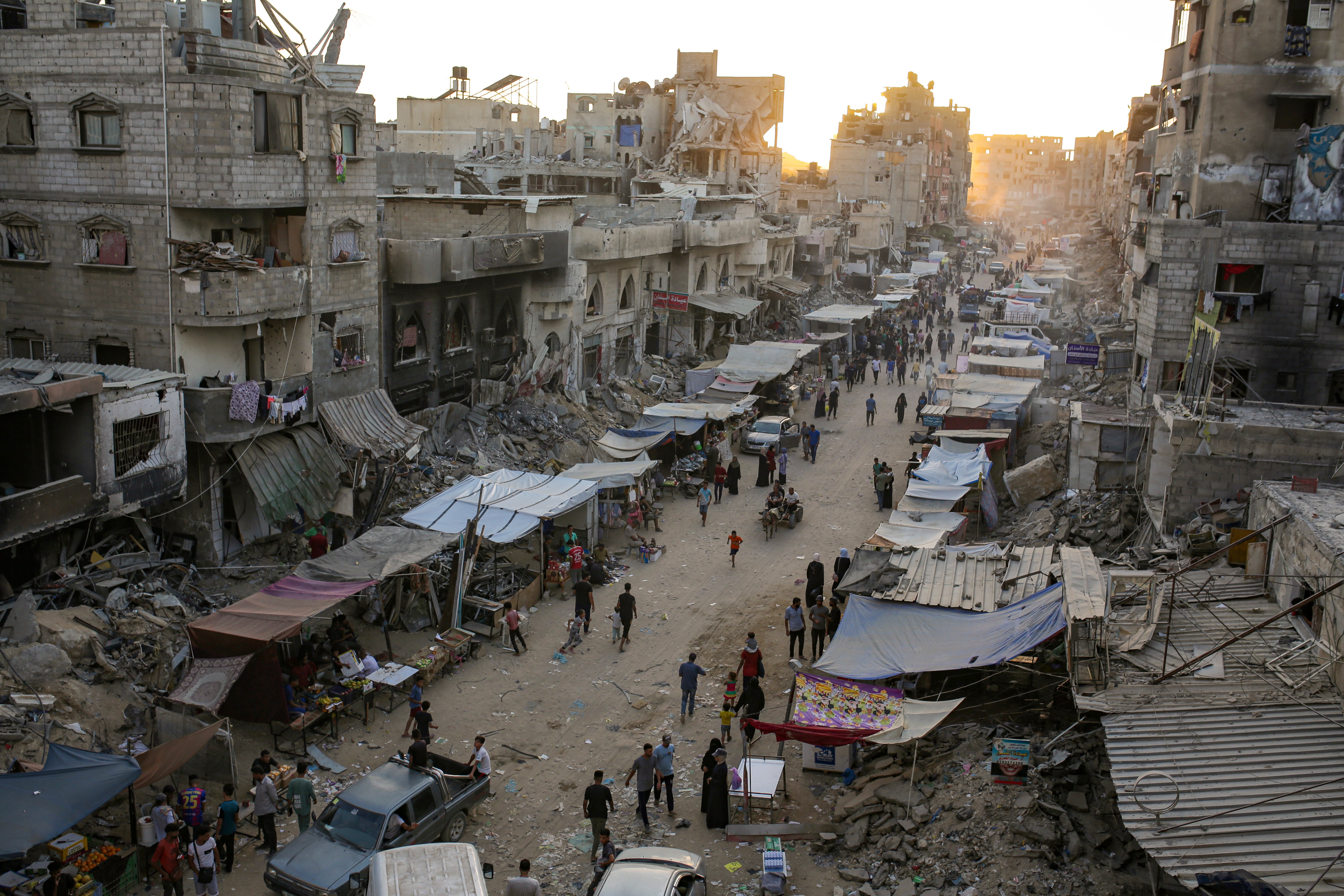Head of Gaza’s largest hospital says he was tortured during seven-month detention
Abu Selmia says he and other prisoners were tortured and held under harsh conditions
Your support helps us to tell the story
From reproductive rights to climate change to Big Tech, The Independent is on the ground when the story is developing. Whether it's investigating the financials of Elon Musk's pro-Trump PAC or producing our latest documentary, 'The A Word', which shines a light on the American women fighting for reproductive rights, we know how important it is to parse out the facts from the messaging.
At such a critical moment in US history, we need reporters on the ground. Your donation allows us to keep sending journalists to speak to both sides of the story.
The Independent is trusted by Americans across the entire political spectrum. And unlike many other quality news outlets, we choose not to lock Americans out of our reporting and analysis with paywalls. We believe quality journalism should be available to everyone, paid for by those who can afford it.
Your support makes all the difference.Israel has released the director of Gaza's main hospital, seven months after the military raided the facility over allegations it was being used as a Hamas command center.
The release of Mohammed Abu Selmia without charge or trial raised further questions about Israel's allegations regarding Shifa Hospital, which its forces have raided on two occasions since the start of its nearly nine-month war with Hamas.
Abu Selmia said he and other prisoners had been tortured and held under harsh conditions, allegations that could not be independently confirmed but matched other accounts of Palestinian detainees who have been released back into Gaza.
“Our detainees have been subjected to all kinds of torture behind bars,” he said. “There was almost daily torture. Cells are broken into and prisoners are beaten.” He said guards broke his finger and caused his head to bleed during beatings, in which they used batons and dogs.
He said the medical staff at different facilities where he was held had also taken part in the abuse “in violation of all laws.” He said some detainees had limbs amputated because of poor medical care.
Israeli officials did not immediately respond to requests for comment about why he had been released or his allegations of mistreatment. Prison authorities have previously denied such mistreating detainees.
Two far-right ministers in Israel’s government meanwhile condemned Abu Selmia's release, saying it had been carried out without their consent.
Israeli forces raided Shifa Hospital in November, alleging that Hamas had created an elaborate command and control center inside the facility. Abu Selmia and other staff denied the allegations and accused Israel of recklessly endangering thousands of patients and displaced people who were sheltering there.

The military uncovered a tunnel beneath Shifa Hospital leading to a few rooms, as well as other evidence that militants had been present inside the medical center, but the evidence fell short of what it had claimed before the raid.
Abu Selmia was detained on 22 November while escorting a UN-led evacuation of patients from the hospital. He said his detention was “politically motivated,” adding that he had been brought to court at least three times but was never charged or allowed to meet with lawyers.
Israel has since raided several other Gaza hospitals on similar allegations, forcing them to shut down or dramatically reduce services even as tens of thousands have been wounded in Israeli strikes or sickened in the harsh conditions of the war. The army raided Shifa a second time earlier this year, causing heavy destruction after saying that militants had regrouped there.
Hospitals can lose their protection under international law if combatants use them for military purposes.
Israel launched its offensive after Hamas's 7 October attack, in which Palestinian militants killed some 1,200 civilians and took another 250 hostages. The war has killed over 37,800 Palestinians, according to Gaza’s Health Ministry, which does not say how many were civilians or fighters.
Most of Gaza's population of 2.3 million have fled their homes, with many displaced multiple times. Israeli restrictions, ongoing fighting and the breakdown of public order have hindered the delivery of humanitarian aid, fueling widespread hunger and sparking fears of famine.
